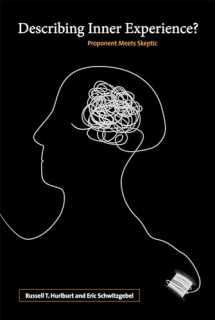
Describing Inner Experience?: Proponent Meets Skeptic (Life and Mind: Philosophical Issues in Biology and Psychology)
Book details
Summary
Description
A psychologist and a philosopher with opposing viewpoints discuss the extent to which it is possible to report accurately on our own conscious experience, considering both the reliability of introspection in general and the particular self-reported inner experiences of "Melanie," a subject interviewed using the Descriptive Experience Sampling method.
Can conscious experience be described accurately? Can we give reliable accounts of our sensory experiences and pains, our inner speech and imagery, our felt emotions? The question is central not only to our humanistic understanding of who we are but also to the burgeoning scientific field of consciousness studies. The two authors of Describing Inner Experience disagree on the answer: Russell Hurlburt, a psychologist, argues that improved methods of introspective reporting make accurate accounts of inner experience possible; Eric Schwitzgebel, a philosopher, believes that any introspective reporting is inevitably prone to error. In this book the two discuss to what extent it is possible to describe our inner experience accurately.
Hurlburt and Schwitzgebel recruited a subject, "Melanie," to report on her conscious experience using Hurlburt's Descriptive Experience Sampling method (in which the subject is cued by random beeps to describe her conscious experience). The heart of the book is Melanie's accounts, Hurlburt and Schwitzgebel's interviews with her, and their subsequent discussions while studying the transcripts of the interviews. In this way the authors' dispute about the general reliability of introspective reporting is steadily tempered by specific debates about the extent to which Melanie's particular reports are believable. Transcripts and audio files of the interviews will be available on the MIT Press website.
Describing Inner Experience? is not so much a debate as it is a collaboration, with each author seeking to refine his position and to replace partisanship with balanced critical judgment. The result is an illumination of major issues in the study of consciousness―from two sides at once.


We would LOVE it if you could help us and other readers by reviewing the book
Book review



